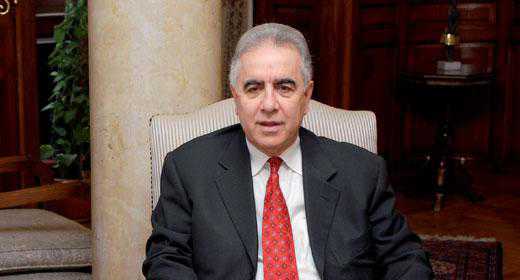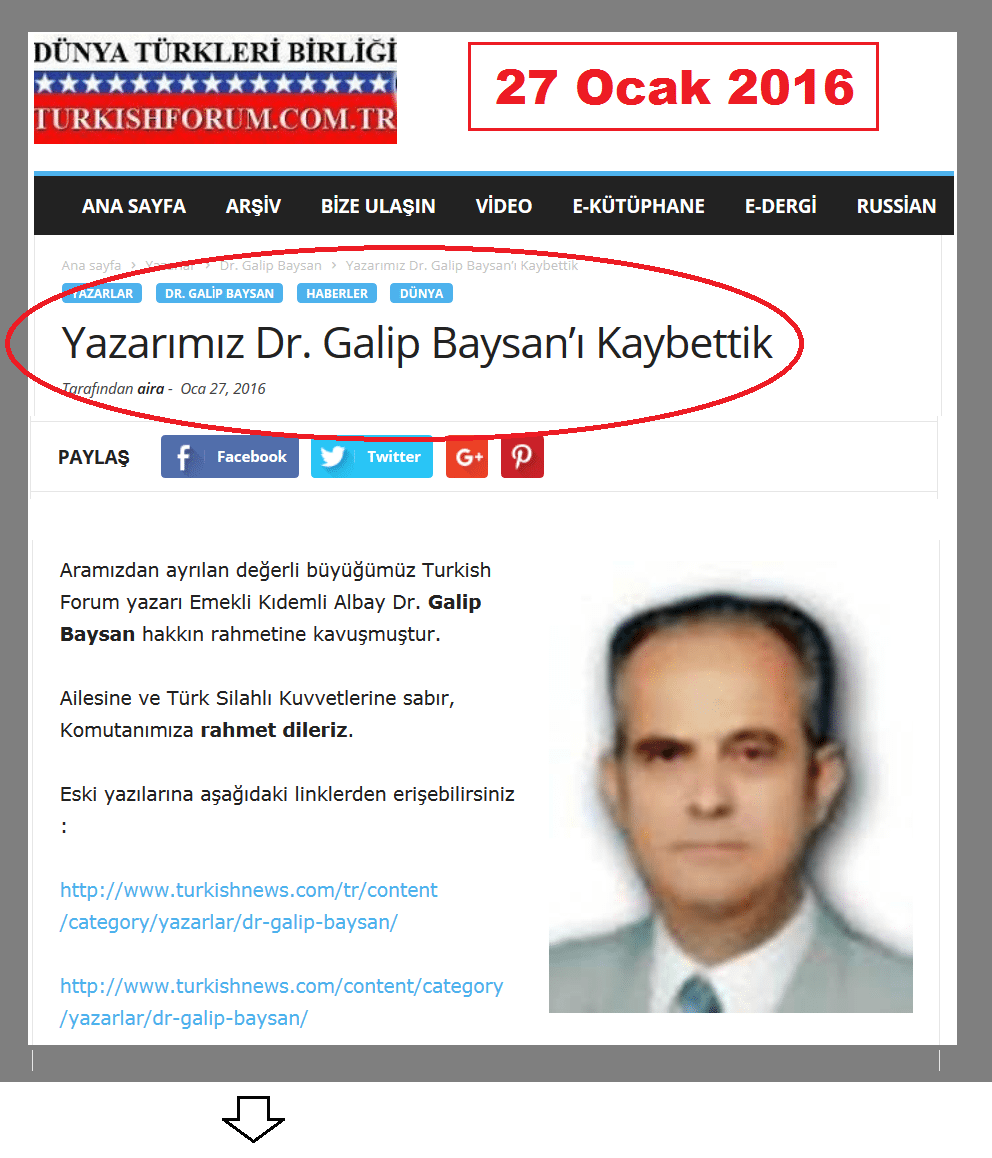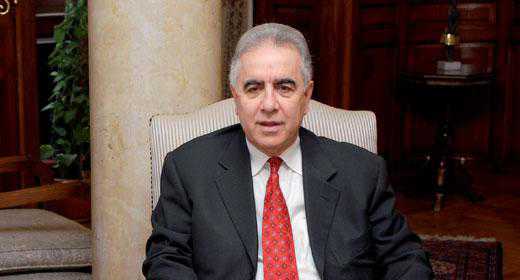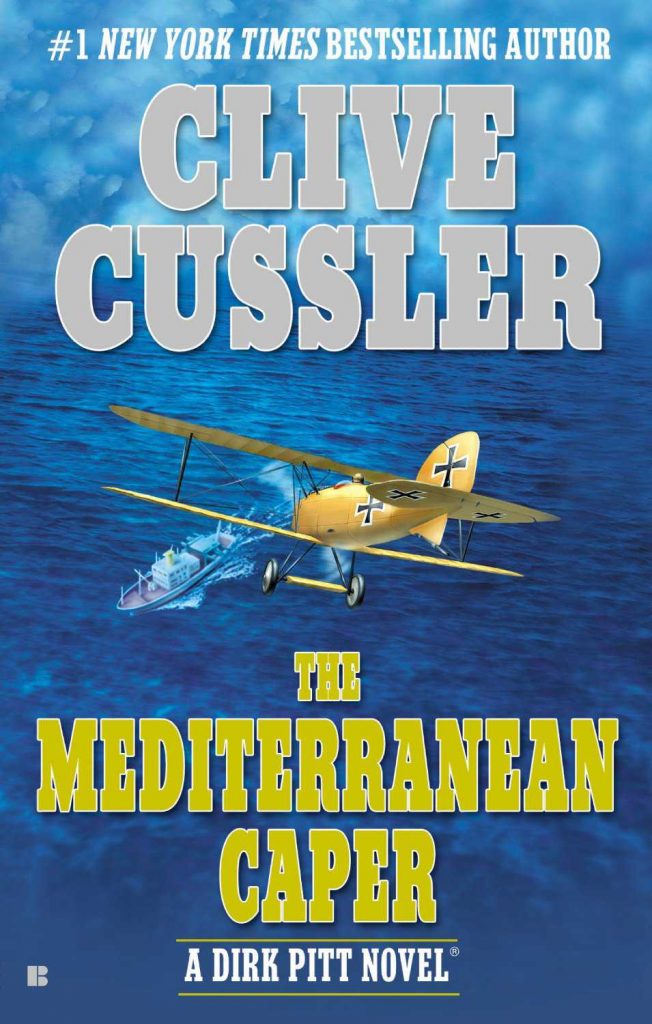



WİNSTON CHURCHİLL AND GALLİPOLİ COMPAİN
( 18th MARCH 1915)
( PART–3 )
At the end of Balkan War, Djemal Pasha Minister of Marine invited a British advisory mission to Turkey. With Churchill’s support, Rear Admiral Sir Arthur H. Limpus was assigned as the head of the British naval mission. The British Advisory Mission to the Ottoman Navy was almost as large as the similar German mission to the Ottoman Army, led by the Prussian General of cavallary, Otto Liman von Sanders. The two missions to some extent counter- balanced each other.
İn 1913 The Turks were suffering from their defeat in Balkan Wars. The conflict with Greece for Aegean islands was still continuing. Turks were determined to equalise their naval position in the Aegean and bought a battleship from Brazil. Despite the protests of Djemal pasha to the U.S. Ambassador, Henry Morgenthau, a violent Phil Hellene who rejoiced in his discomfiture, U.S.A. immediately sold two modern ships, the Idaho and the Mississippi, to the Greeks. (1) With the advice and assistant of British Naval advisors Turks ordered two modern battle ships to England, Sultan Osman and Reshadieh. Both had been built in British shipyards and were immensely powerful; the Sultan Osman mounted more (including 13.5 inch) guns than any battleship ever built before. The Sultan Osman was completed in May and the Turks had paid half of her purchased price; the Reshadieh was ready in early July.
Their overall cost was 7.500.000. Pound. The money had been raised from the people voluntarily and every Anatolian peasant felt he had a share in these magnificent new ships, which at one move would wipe out of the Greeks’ sharp deal over the Idaho and Mississippi. It is well known that; women had sold their jewellery and school children had given up their pocket money to contribute to the popular subscription. Istanbul was ready to meet the arrival of the ships. Admiral Limpus had put out to sea from Istanbul on 27 July 1914, with ships of the Turkish Navy, waiting to greet the Sultan Osman I, and escort her back through the Straits of Dardanelle to the Ottoman capital, where a “Navy Week” had been scheduled with lavish ceremonies for the Minister of Marine, Ahmet Djemal, and for the cause of British- Ottoman friendships. In early July Turkish crew (about 500 soldiers under the command of Captain Rauf Bey) were ready to take over the ships.
Churchill was aware that these ships meant a great deal to the Ottoman Turks. They were intended to be the making of the modern Ottoman Navy and it was assumed that they would enable the empire to face Greece in the Aegean and Russia in the Black Sea. He was against of this view in principle and although there was a strong British Naval Advisory team in Turkey, he received a very hostile decision for these ships. During the development of world crisis, 0n 27 July 1914, Churchill raised the issue of whether the Turkish Battleships could be taken by the Royal Navy. The chain of events which apparently flowed from Churchill’s initiative in this matter eventually led to him being blamed for the tragic outbreak of war in the Middle East. The next day Churchill directed to the First Sea Lord, Sir Archibald Moore. “ In case it may became necessary to acquire the 2 Turkish battleships that are nearing completion in British yards.”(2)
The Turks suspected what Churchill had in mind, Rauf Bey and his sailors already on board a transport in the Tyne, attempted to hoist the Turkish flag and take his ships away. On 29 July the Foreign Office warned the Admiralty that the Sultan Osman I was taking on fuel and was under orders to depart for Istanbul immediately, even though unfinished. Churchill immediately ordered British security forces to guard the vessels and to prevent the Turkish crews from boarding them or from raising the Ottoman flag over them. (Which would have converted them, under prevailing international law, into Ottoman territory?) There had been a clash around the ships with a few causalities from both Turkish and British sides. On 31 July the cabinet accepted Churchill’s view that he ought to take both Turkish vessels for the Royal navy for possible use against the Germany in the event of war. Sultan Osman I became HMS Agincourt and Reshadieh became HMS Erin after this decision. (3) This events created a very big disappointments and hatred in Turkey and two days later an agreement was signed between Ottoman Empire and Germany.
In Berlin, the German Government decided to send Mediterranean Fleet, which was composed of Goeben and Breslau under the command of Rear Admiral Wilhelm Souchon to Istanbul, in the early morning of 4 August. French Navy was occupied in convoying their troops from North Africa to France, so the task of intercepting the Goeben and Breslau fell to the British. No one in the British Fleet ever dreamed that the German ships were heading for Istanbul; presumably Churchill’s fear of the Turks had evaporated once he had carried out his coup on the Tyne. Churchill warned the Admiral in the Mediterranean, Sir Archibald Berkeley Milne for these two ships.
Goeben, the one German ship at large in the Mediterranean, which outstripped in speed and power every vessel in the French Navy. British battle cruisers the Indomitable and the Indefatigable, which alone could compete with her speed were ordered to shadow and sink her. Prime Minister Asquit noted “Winston’s mouth watered for the Goeben.” Milne’s second-in-command, Rear Admiral Sir Ernest Troubridge was commanding an armoured cruiser squadron of four good ships and eight destroyers. (4) British Fleet couldn’t do anything to Goeben and Breslau and German Admiral Suchon found himself his ships untouched, on august 11th at the entrance to the Dardanelles, under the guns of the fortress of Cahanakkale.
Enver Pasha, on his own responsibility ordered the commander at Chanakkale to allow the Goeben and Breslau to steam up to Istanbul. It was announced that the Germans sold these two ships instead of the two ships blocked by Winston Churchill two weeks ago. The crews put aside their caps and donned the fez, the Star and Crescent was hoisted, the Goeben became the Yavuz Sultan Selim and the Breslau the Midilli.
Souchon replaced British Admiral Limpus in command of the Turkish fleet and on the 9th September the British Naval Mission was dismissed. Almost three months later on October 28 these two ships still German crewed, accompanied by some small Turkish vessels, entered the Black Sea and shelled the Russian Ports of Odessa, Sevastopol and Theodosia. Thus Ottoman Empire had been pushed into the war. (5) Winston Churchill remained as First Lord of the Admiralty, Admiral Milne had retired from the Navy on August 18th, but Rear Admiral Troubridge was court martialled in November and although acquitted, never held a sea command again.
REFERENCES:
(1) David Wilder: The Chanak Affair,p.24 ( Hutchinson of London-1969)
(2) David Fromkin: A Peace The End All Peace, p.56-57 (Avan Books, New York-1990)
(3)Philip J.Haythornthwhite: Gallipoli-1915, Frontal assault on Turkey,p.6 ( London-1991)
(4) Violet Benham Carter: Winston Churchill, As I Knew Him,p.320-321 (The Reprint Society, London- 1966)
(5)David Walder,p.27-28
Dr. M.Galip Baysan


Many unanswered questions remain in the wake of the barbaric Boston Marathon bombings last week.
In the absence of established facts, it is difficult to reach an informed conclusion and find a motive for the murderous actions of the Tsarnaev brothers — Tamerlan, 26, and Dzhokhar, 19. It is interesting to note that Tamerlan carries the name of a vicious 14th century Turkic warlord who razed entire cities to the ground and butchered millions of innocent people.
Instead of jumping to unwarranted conclusions and making generalizations about Chechens, Muslims, and the Tsarnaev family, some probing questions are in order:
— Back in 2011, when the Russian intelligence services asked the FBI to investigate Tamerlan’s radical Islamist ties and plans to join underground groups, how thoroughly did the FBI carry out this task? If the FBI agents did a thorough job and found nothing sinister, why did they not follow up a few months later when Tamerlan returned to the US in 2012, having spent six months in the troubled Russian republics of Chechnya and Dagestan? And why did US law enforcement agencies fail to investigate the Jihadist videos and links to radical Islamist websites found on Tamerlan’s computer?
— If the Russian tip was not seriously pursued by US officials, was their decision based on political considerations or a proper assessment of the risk of terrorism? Since Chechen insurgents were fighting Russia for independence, did US officials prefer not to meddle in an internal Russian conflict? Did the US view Chechen “terrorists” as “freedom fighters,” concluding that they represented no threat to the United States? More significantly, what role did the anti-Russian stance of influential neo-conservative American circles play in assessing the warnings on Tamerlan?
— Did the Russian intelligence services thoroughly investigate Tamerlan when he fell in their lap while visiting Dagestan and Chechnya for six months, particularly if they were dissatisfied with the FBI’s lukewarm response to their earlier request?
— Would this terrorist act killing four Americans and injuring close to 200 now prompt US intelligence agencies to cooperate more fully with their Russian counterparts to jointly combat terrorism regardless of international political concerns?
— Will the US investigate the 10-day visit to Turkey in July 2003 by Tamerlan and three of his family members, as disclosed by Turkish Interior Minister Muammer Guler? What was the purpose of Tsarnaevs’ visit to Turkey and who were their contacts?
Turning to Ruslan Tsarni, the talkative uncle of the Tsarnaev brothers, who made controversial and contradictory comments disseminated worldwide by CNN, NBC, Wall Street Journal, Reuters, and Time magazine, among others. Uncle Tsarni accused an unnamed Armenian convert to Islam in Cambridge, Mass., for radicalizing Tamerlan!
Tsarni, a Maryland resident, told the NBC Today show that one of his Armenian acquaintances informed him about an “outside influence” on Tamerlan: “He [the acquaintance] said, there is someone who brainwashed him [Tamerlan], some newly convert to Islam. I would like to stress [the acquaintance] was of Armenian descent.”
However, Uncle Tsarni, gave CNN a completely different explanation for the despicable actions of his nephews. He had accused them of being “losers,” claiming that they had brought shame on their family and the Chechen people. But, he later told NBC Today that he had called his nephews “losers” out of anger, and that he was now sure their crime had nothing to do with Russia or Chechnya. Tsarni also contradicted himself on CNN by claiming that the person who had “brainwashed” Tamerlan was the “new convert to Islam of Armenian descent,” not the acquaintance!
The question is, who is Tsarni and why is he accusing an Armenian? A cursory internet search reveals that he has had direct ties to western energy companies involved in the Caspian region. He has worked for Big Sky Energy, Golden Eagle Partners, and Nelson Resources Ltd., all three with direct investments in Caspian Sea energy projects. Could Tsarni’s ties to these energy companies explain his accusation against an Armenian?
Finally, why hasn’t a single Armenian organization or official complained to the news media about their dissemination of Tsarni’s baseless and libelous statements, accusing an Armenian for radicalizing Tamerlan? A similar situation occurred years ago, when an Australian newspaper, The Canberra Times, reported: “Pope Shot by Armenian Gunman.” In reality, Pope John Paul II was shot by Mehmet Ali Agca, a Turk!
It is high time that Armenians organize an anti-defamation organization that would vigorously pursue all those who libel and defame them around the world.


Armenian communities around the world are gearing up for the Centennial of the Genocide on April 24, 2015, by coordinating their commemorative plans at the local, regional, and international levels.
A Pan-Armenian Centennial Committee was established in Armenia two years ago consisting of the leadership of the Republics of Armenia and Artsakh (Karabagh), heads of religious denominations, and representatives of major Armenian political, charitable, and cultural organizations. Local committees have also been formed throughout the Diaspora. As reported earlier, the international committee of Armenian Genocide experts met in Yerevan last month to recommend specific projects to be adopted by the Pan-Armenian Centennial Committee during its May 30 meeting.
On April 6, the Centennial Committees of eight Middle Eastern countries (Cyprus, Egypt, Iraq, Kuwait, Lebanon, Syria, the United Arab Emirates, and Iran represented by committees in Tehran, Esfahan, and Tabriz,) met in Beirut to coordinate their plans on a regional basis. Also attending was Hayk Demoyan, Secretary of the Pan-Armenian Centennial Committee in Armenia.
His Holiness Aram I, Catholicos of Cilicia, presided over the meeting and gave a timely keynote address outlining the principles that should guide the regional committees in planning for the Centennial. Aram Vehapar succinctly formulated the objectives in three key Armenian words: “Hishel, Hishetsnel, yev Bahanchel” [To Remember, To Remind, and To Reclaim].
His Holiness went on to explain: “for 100 years, we stressed the remembrance of the Genocide. We lit candles, organized commemorative evenings, and published books. These important activities will imbue our youth with the sacred testament and souls of our martyrs. Yet, we should not singly focus on this subject. For 100 years, we reminded people through demonstrations, lobbying, and raising our voices. We aim to continue
these activities with different approaches. However, it is imperative that we stress our demands for restitution.”
The Vehapar reminded the attendees about the international conference organized by the Catholicosate of Cilicia a year ago with the theme: “From Recognition to Restitution,” with the participation of international legal experts. “We need legal experts in order to present, defend, and pursue our claims appropriately in international courts,” the Catholicos stated.
Aram I went on to suggest a division of labor between the Republic of Armenia and the Diaspora: “We should work in unison. Our approaches and emphasis could be different from one another; and sometimes they must be different! Let’s not forget that Armenia is a state, and the Diaspora is a diaspora. Neither the state nor the diaspora can speak on each other’s behalf. Each has its own unique voice and function. But, there should be intra-Armenian harmony and coordination. In other words, we should plan and work with a common purpose, holding on firmly to our demands for restitution.”
The Catholicos then urged Armenians to include the far-flung regions of Africa, the Far East, and South America within the scope of the Centennial activities. Turning to the Middle East, Aram I made three important points:
1) The pursuit of the Armenian Cause in the Islamic world requires a special approach, because Turkey is a Muslim state.
2) Turkey’s ever-increasing and penetrating influence in the region is a serious problem. “In my meetings with leaders of countries in the region, I always tell them: ‘you have kept your doors very wide open in front of Turkey. The day will come when you will recognize your mistake. Turkey uses different masks.’ Therefore, we must be alert as the genocidaire is closely following our steps. We will not retreat and will not weaken in the face of Turkish meddling.”
3) Genocide is not an event that belongs to the past. The Diaspora is a consequence of the Genocide, and in a sense, it is still continuing.
Catholicos Aram I concluded by categorizing the Armenian efforts for recognition and restitution into three dimensions: historical, political, and legal. “The time has come, without ignoring the first two, to place a clear priority on the legal aspect. In this regard, we have a massive amount of work to accomplish,” he stated.
Significantly, Hayk Demoyan, Secretary of the Pan-Armenian Centennial Committee, also speaking at the regional meeting in Beirut, noted: “We know that we cannot undo some of the consequences of the Armenian Genocide, such as the lost lives and destroyed churches, nevertheless, the major consequence is the loss of the territories!”

The Book of The Week 09: The Mediterranean Caper
Dear readers,
This week’s writer is Clive Cussler, for the second time. The Mediterranean Caper was his first novel.

Summary: Dirk Pitt rides a tidal wave of intrigue in this classic Cussler. On an isolated Greek island, a World War I fighter plane attacks a modern U.S. Air Force base–a mysterious saboteur preys on an American scientific expedition–and Dirk Pitt plays a deadly game of hunter and hunted with the elusive head of an international smuggling ring.
For further information and for download link, please refer to the turkish version:
See you later in next article, I wish you all happy reading,
Saturday, 13th april, 2013 Antalya, Türkiye
Harun Taner <harun.taner.antalya@gmail.com>